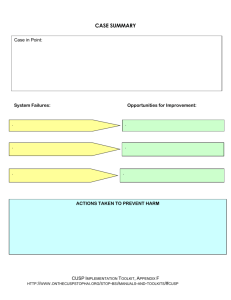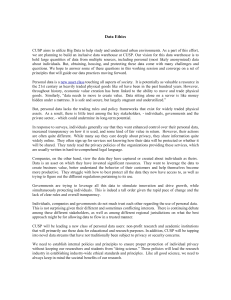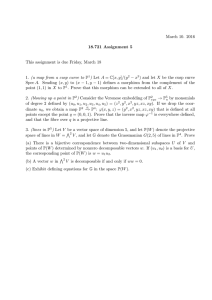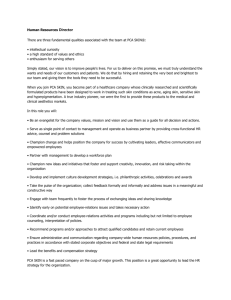CUSP Monthly Meeting Agenda ARMSTRONG INSTITUTE
advertisement
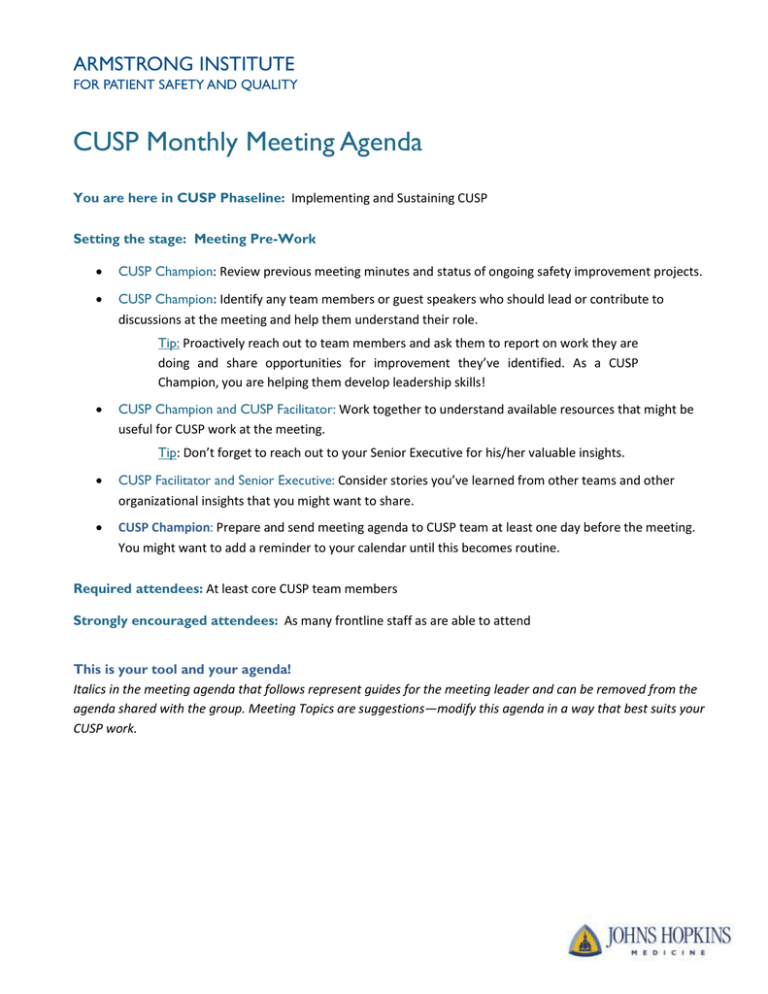
ARMSTRONG INSTITUTE FOR PATIENT SAFETY AND QUALITY CUSP Monthly Meeting Agenda You are here in CUSP Phaseline: Implementing and Sustaining CUSP Setting the stage: Meeting Pre-Work CUSP Champion: Review previous meeting minutes and status of ongoing safety improvement projects. CUSP Champion: Identify any team members or guest speakers who should lead or contribute to discussions at the meeting and help them understand their role. Tip: Proactively reach out to team members and ask them to report on work they are doing and share opportunities for improvement they’ve identified. As a CUSP Champion, you are helping them develop leadership skills! CUSP Champion and CUSP Facilitator: Work together to understand available resources that might be useful for CUSP work at the meeting. Tip: Don’t forget to reach out to your Senior Executive for his/her valuable insights. CUSP Facilitator and Senior Executive: Consider stories you’ve learned from other teams and other organizational insights that you might want to share. CUSP Champion: Prepare and send meeting agenda to CUSP team at least one day before the meeting. You might want to add a reminder to your calendar until this becomes routine. Required attendees: At least core CUSP team members Strongly encouraged attendees: As many frontline staff as are able to attend This is your tool and your agenda! Italics in the meeting agenda that follows represent guides for the meeting leader and can be removed from the agenda shared with the group. Meeting Topics are suggestions—modify this agenda in a way that best suits your CUSP work. ARMSTRONG INSTITUTE FOR PATIENT SAFETY AND QUALITY CUSP Monthly Meeting Agenda Template Meeting goals: Insert short summary of desired meeting results here. Tip: Be specific about any decisions you want to reach by the end of the meeting. Desired goals could include following up on action items, celebrating success stories, and sharing any team member concerns. Logistics: Insert room location, as well as teleconference number, participant codes, and links (e.g., an Adobe Connect Room link) to allow participants to connect remotely if appropriate. Meeting Topics 1. Agenda overview: CUSP Champion or designated team summarizes the agenda. Tip: Meeting Agenda superstars may remind the group of their CUSP team mission and how important participation is to improve safety in the unit/group. 2. State of Our Safety Union: CUSP Champion or designated team leads/guest speakers may share dashboard data, harm scores, actions around opportunities for improvement. Tip: Don’t let this just be a report out. Remember to engage people’s thinking around what the data/scores might mean. At the same time, remember the system! Don’t leap to conclusions. You may need to do a bit more fact finding. Assign system sleuths to learn more and remember to follow-up! 3. Status of Safety Efforts: CUSP Champion or designated team leads share status of current safety projects, celebrate successes, identify potential barriers and needed resources/ways to reduce barriers. Tip: CUSP Champions and CUSP Facilitators should make sure the Senior Executive is an active participant in these discussions. 4. Diving Deeper into a Defect: CUSP Champion or designated team member use the Learning from Defects tool as a framework. 5. Idea time: CUSP Champion/Facilitator co-lead a discussion on useful tools, approaches, and what we can learn from other teams/organizations, etc. (This might be incorporated into a deeper dive into a defect the team is working on.) 6. Action items: CUSP Champion summarizes action items, owners of these action items, and expected follow-up for next meeting. Post-Meeting Work: CUSP Champion shares meeting minute, which must include action item information. Revisit Quarterly: Safety Culture and team dynamics check-in: CUSP Champion or designated team member(s) share progress on culture interventions, good ideas, collaborations that work well, what the team can do better, etc. Tip: You can certainly change the amount of time you spend on meeting agenda items every month to reflect your team’s priorities.

